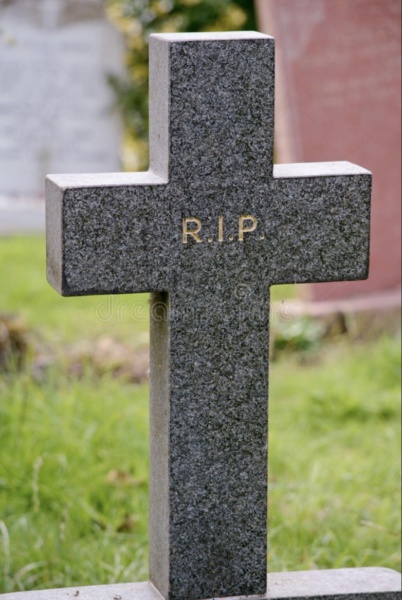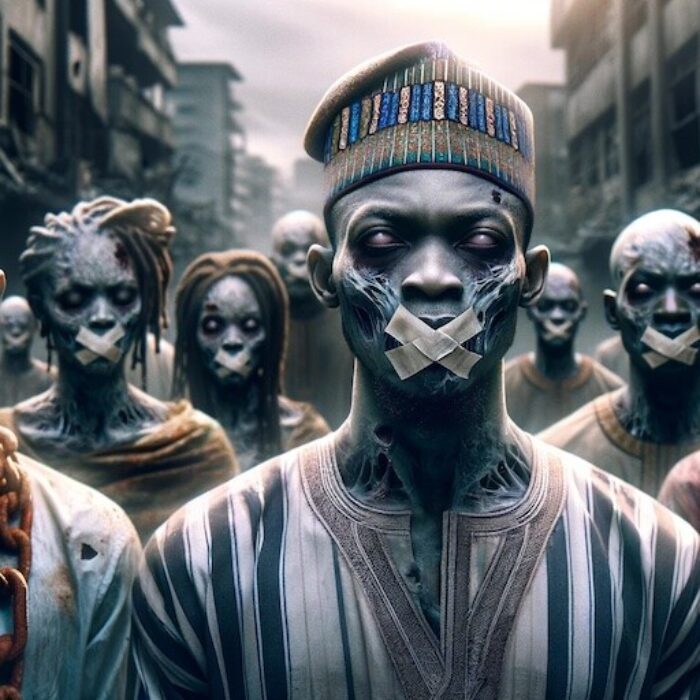By Tunde Adebayo, PhD — AMJ Guest Writer
I enjoyed reading obituaries long before I started writing them for family and friends who passed. This might sound somewhat morbid, but as a little boy the obituary section in the local newspaper was my go-to place. I just love learning about the lives of strangers.
But later in this guest essay, I write my own obituary, while I’m still alive.
In the meantime, let me say that I find modern obituaries weird. Every dead person is a saint. No one I know is ever bad once they’re dead. No blemishes. No struggles. No failures. And no disappointments.
When I read the obituaries of friends and relatives, I hardly can believe what it says about them. Conservatively, only about 25% of the contents are true. Not even the cause of death is true.
For example, my friend who was a miserable, wife-beating, wife-cheating, children-abandoning alcoholic was transfigured into a loving husband and kind father in his obituary. “He was a gentleman.”… “He loved his family”, the obituary announced. Nothing could be further from the truth. The truth is that his death left a legacy of hurt.
Notice that when a person dies, their real-life stories die, too. In obituaries, eulogies and tributes, we retell their stories, not the real one, but the one we invent. Often, the obituary writer hasn’t seen or talked to the deceased person in decades. Today in Nigeria, we have ghost writers who craft sanitized obituaries for people they have never met.
Have you read an obituary or tribute or heard the eulogy of a dead person you know lately? If you have, you’d notice the strange transfiguration I’m talking about – the unbelievable dissimilarity between the before-death and the after-death story. The incompatibility is enough to trigger cognitive dissonance. The flawed person you knew is now a flawless angel in the obituary. What you read is not about the person you knew, rather, it’s a made-up life-after-death story.
The inconvenient truth is that obituaries, like the burial ceremonies they are part of, have next to nothing to do with the dead person and absolutely everything to do with the living. It is a relic of the living, written for the living and by the living. If the dead awoke, they won’t even recognize themselves in the obituaries and tributes we write about them. The most painful is that we usually don’t say these good things to them when they were alive.
Yes, obituaries are expected to portray the deceased person in the best possible light. But not distort their life story with untruths. I completely understand that nobody wants to read about a person’s every indiscretion when they pass away. Not only is this disrespectful to the deceased, but it’s not helpful for loved ones who are grieving.
But when we lie about a dead person, we memorialize them in ways that dishonor them, as well as those who are grieving the loss. When we elevate deceased persons from their ordinariness to this triumphant status of model citizens, heroes and heroines we make a mockery of them.
If we tell the truth in obituaries, it may actually motivate people to change their ways and live a better life. When we are aware that our obituary, the last chapter in our book of life, will reveal our negative personality and character flaws, it might actually challenge us to reevaluate our lives and take steps to become good people.
If my friend knew that his evil deeds will eventually be revealed in his obituary for the world to read, maybe he would have changed his hurtful ways before he died.
In my view, a great obituary humanizes and situates the deceased person’s accomplishments and struggles within the context of his or her particular circumstances and in an honest way. For example, “Adebiyi was born dirt poor but he struggled and pulled himself out of poverty to become a top business executive.”
Write Your Obituary While You’re Alive
When you pass, how do you make sure the person in the obituary is you? How do you write the last chapter of your life story and set your record straight? You write it before you die.
I’ve written my own obituary. I want no revisions from my family. It was an important way to acknowledge the reality of dying, no matter how far in the future that may be for me. It provides the opportunity to reflect on my life, recall fun memories, and reminisce about family and friends.
OBITUARY
TUNDE ADEBAYO
Tunde Adebayo was born in Lagos. He died of old age. Tunde had an amazingly interesting life. Things didn’t always work out as planned. Sometimes he succeeded impressively. Sometimes he failed stunningly. He was surprisingly intelligent, and not one to brag about his intellectual gifts. He was purposeful when it mattered, but goofed off when it didn’t. He was driven and tenacious and self-assured, allowing him to accept the many uncertainties in his life. All his life he tried to do the right thing. But sometimes the right thing was not right at all. In some of his many life pursuits, he met expectations. In many others, he was a disappointment. He lived his best life making his passion his career and finding a way to be financially secure while pursuing his dreams. He was trained as an engineer, and was good at it. But hated the profession. He was trained in business and made a living from owning his own business. But he hated the zero-sum ethos of business. He started several entrepreneurial ventures; some succeeded and many failed spectacularly. He was a dedicated mentor to young entrepreneurs looking to change the world. He made no pretense at being fair. No, he wasn’t always nice either, but he was kind to a fault. He had a benevolent heart and gave his time and talent to everyone who had a need. He wouldn’t be voted the best spouse or father there ever was, but he loved his dear wife and children deeply and unconditionally, and together they raised happy and healthy children who are changing the world in their own little ways. He loved reading, writing, music, hiking, gardening and his pet animals. He was a foodie. If it smelled good, he’d eat it. He was a lover of great wine, especially the cheap, good ones. He was a world tourist and a lover of culture and people, but not the racist types. He lived his life fully and in the way he wanted. He didn’t care about what others thought or said about him. Tunde wishes no burial ceremony. No “celebration of life”. No uniforms. No golden casket. No gun salutes. All he wants is a covered six feet deep hole with a headstone and the inscription: “He did his best and had fun doing it”. And he would appreciate it if only his friends and loved ones attended his uneventful funeral.
You should be remembered on your own terms. Your life story is yours and you are the teller of your story — so you set the tone. It gives you control over how you’d want to be remembered in your own words.
I encourage you to write your own obituary and have the last word.




